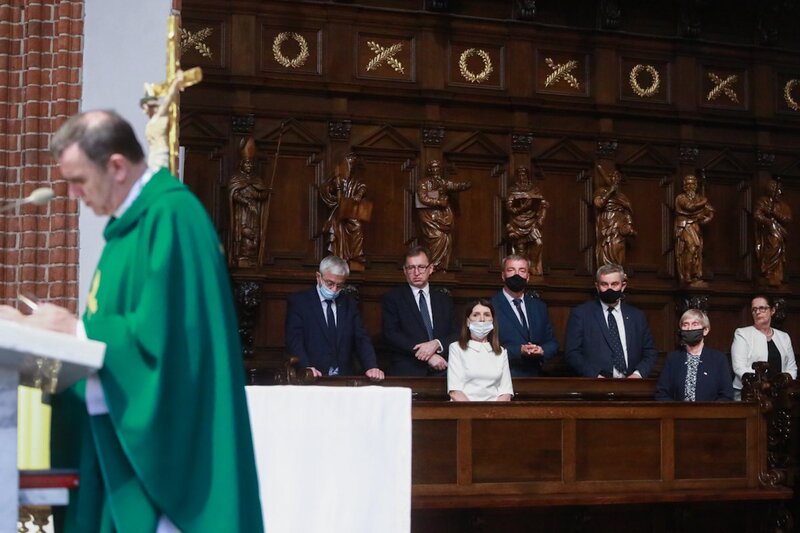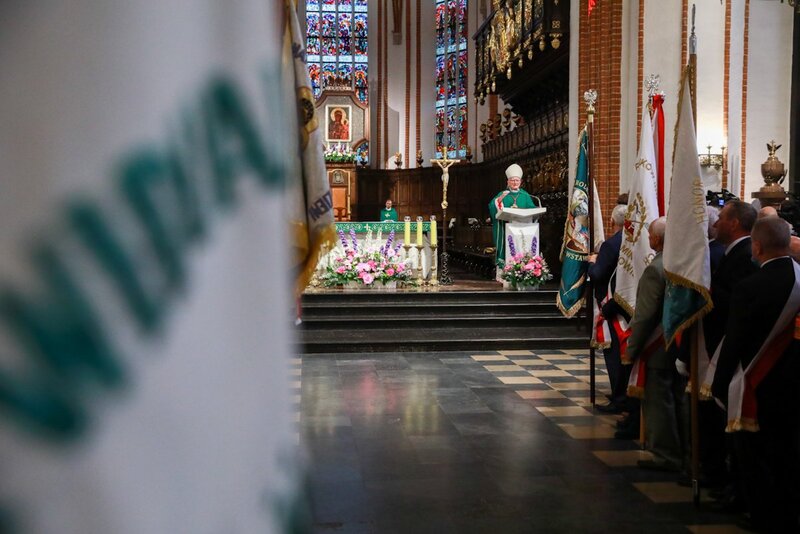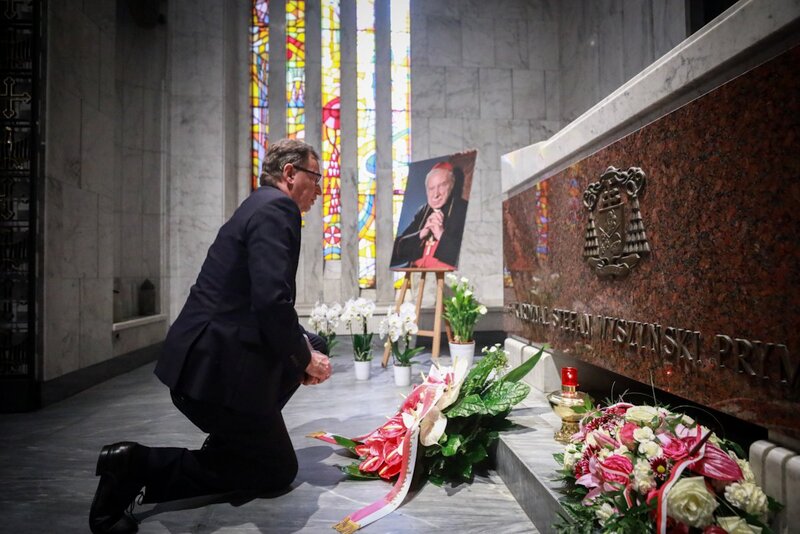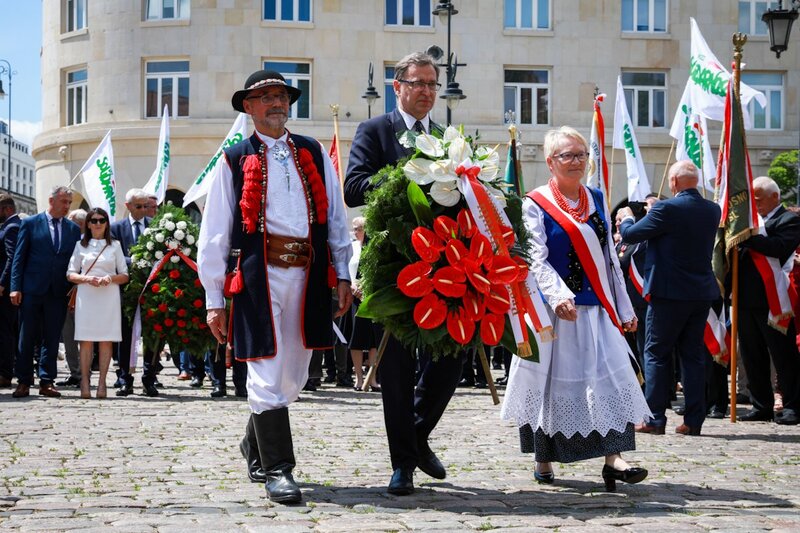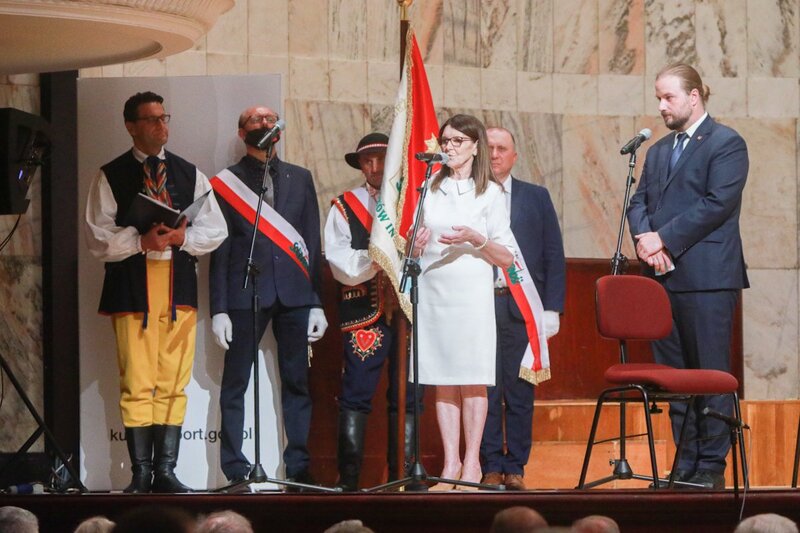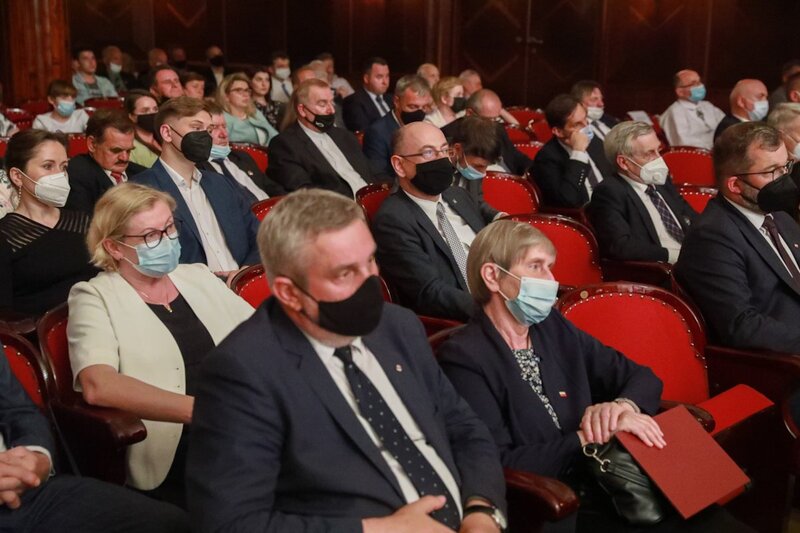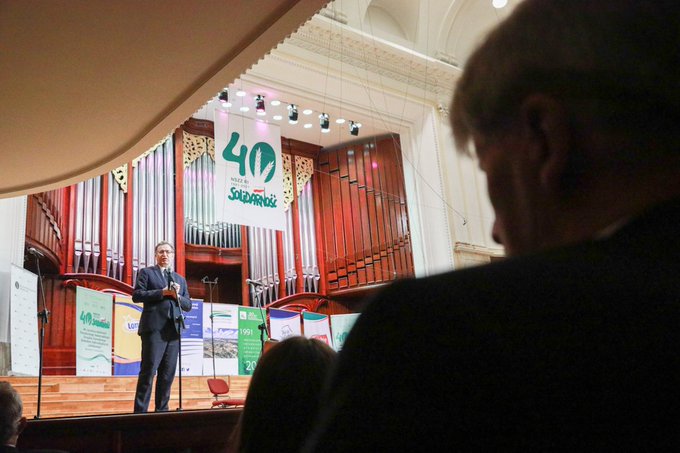It is under the honorary auspices of the Institute of National Remembrance that the celebration of the 40th anniversary of the official recognition of farmers’ "Solidarity" trade union by the communist authorities was held yesterday, attended by the Institute’s President Jarosław Szarek and his deputy, Mateusz Szpytma.
It started with 11 o’clock mass in John the Baptist Cathedral in Warsaw, followed by the participants laying flowers on the sarcophagus of Cardinal Stefan Wyszyński and at his statue in KrakowskiePrzedmieście Street – because Farmers’ "Solidarity" would not have been born had Polish bishops and the primate not lent it their full support.
A commemorative conference in the National Concert Hall culminated the celebration; the participants spoke about the significance of the Farmers’ "Solidarity", and a letter by President Andrzej Duda was read by his advisor. The conference was followed by a performance by the "Silesia" song and dance ensemble.
The Institute of National Remembrance marked the anniversary with “This is Where Farmers' ’Solidarity’ was born” exhibit, displayed in 18 Polish towns and cities in April and May this year.
Read about the exhibit here; collected information about the "Solidarity" Trade Union can be found here.
Historical context
The establishment of "Solidarity" was one of the most significant events marking the end of the 20th century. From the very beginning, the movement was supported by Polish farmers. While registering the "Solidarity" union, the communists did not agree to the registration of a similar union of farmers. Its statute was submitted to the Provincial Court in Warsaw on 24 September 1980.
The most important demands of the rural population included:
- the right to freedom of association in independent trade unions
- the communist authorities respecting the right to land ownership
- the free sale of land
- granting individual farmers the rights so far possessed by state-owned collective farms (PGRs)
- the unification of social rights in the countryside and in the city
- reform of rural education
- respect for religious freedom
On 29 December 1980, a farmers’ protest began in Ustrzyki Dolne, and on 5 January 1981, they started the occupation of the seat of the Provincial Council of Trade Unions in Rzeszów. At the turn of January and February, a dozen or so people began a hunger strike in St. Józef church in Świdnica. One of the protesters 'demands was to register an independent farmers' union. On 10 February, the communist Supreme Court rejected the registration of farmers' "Solidarity" , but soon (18/20 February) the protests led to the signing of the Rzeszow-Ustrzyki agreements. They were the last social agreements concluded in 1980-81, after Gdańsk, Szczecin, Jastrzębie-Zdrój and Dąbrowa Górnicza. In response to the regime's constant objection to the registration of the farmers’ union, the existing independent farmers’ organizations united under the name of the Independent "Solidarity"Farmers' Trade Union in Poznań in March the same year. The union’s activities were systematically supported by "Solidarity" and the Church hierarchy. Primate Stefan Wyszyński met with the farmers’ representatives on numerous occasions, and personally intervened with the communist authorities, supporting the aspirations of the rural population.
The fight against the establishment of the farmer’s trade union resulted in the famous Bydgoszcz crisis. As a protest against the brutal actions of the regime, the largest strike in Poland took place on 27 March 1981. About 11 million people joined in, which was even more than the number of "Solidarity" members. It was this civic protest that finally enabled the registration of “Solidarity”Self-Governing Trade Union of Individual Farmers on 12 May 1981. This success is also seen as the last social initiative of Primate Wyszyński. The Moscow communists did not hide their indignation. “Kania promised that you would not give up, that you would not register "Rural Solidarity". [...] And yet you have capitulated. You have put us in a very difficult situation," roared Mikhail Suslov, a member of the Soviet Politburo.
In 1980, Polish "Solidarity" gave rise to the collapse of the Soviet empire and satellite communist states on four continents. The world shaped by the Cold War after 1945 was rebuilt. The effect was the liberation of many countries, such as Lithuania, Latvia and Estonia to Georgia, from the Soviet influence or occupation. Thanks to the breakthrough initiated by “Solidarity”, it was also possible to unite Germany. Polish "Solidarity" symbolizes the triumph of peaceful spiritual strength over the materialistic communist empire of evil.
